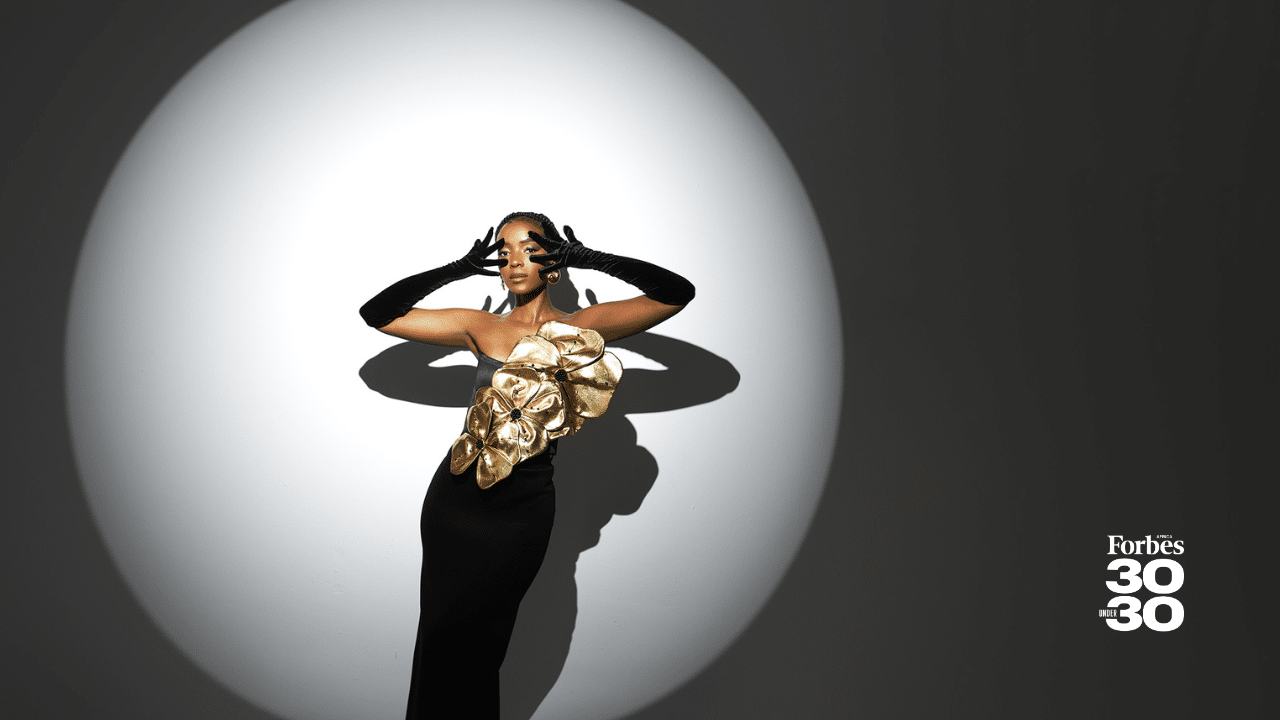The milestone speaks for itself: it’s the 10th anniversary of FORBES AFRICA’S 30 under 30 list, and just like the honorees who have come before them, the class of 2024 too are driven by impact. Profits aside, it’s about achieving success with innovation, influence and individuality. They aren’t looking to fill big shoes but rather lace up their own and forge ahead with giant strides, leading by example and leaving an indelible path for the changemakers to come.
Words and Curation: Chanel Retief
Additional research and reporting: Nicole Pillay With inputs from: Oluwatomisin Amokeoja
Art Direction and Layout: Lucy Nkosi | Photography: Katlego Mokubyane | Photography Assistant: Sbusiso Sigidi | Studio: NewKatz Studio, Johannesburg | Styling: Deneal Van Wyk | Outfits supplied by: B Mashilo Designs, DFLO, Franc Elis, Ephymol and Preview Accessories | Hair & Makeup: SnehhOnline Beauty
Known to the world as the actress who brought Puleng Khumalo to life in the Netflix original series Blood and Water, Ama Qamata describes this “passion project” as something she wanted to see do really well.
“I was in varsity, and dropped out in my second year,” Qamata says to FORBES AFRICA.
“And I really was new to the industry. It was my first time doing something that big. And I just remember the shooting being so stressful. I guess my mentality the whole time was ‘I just need to show up and give my best’. I remember at the Queen Sono premiere, the CEO of Netflix, Ted Sarandos, met me and said, ‘oh, I’m not worried about the show’.”
Loading...
Sarandos was right. Months later, when the show premiered in May 2020, it ranked number one in South Africa, France, The Bahamas, Libya, Jamaica, Trinidad, and Kenya. It is also the fi rst South African show to reach number one in the United States.
“When it came out, it was insane. I didn’t even have time to process it because I was working,” Qamata laughs.
In a 2023 report released by the streaming platform, Netflix stipulated that since entering key countries in sub-Saharan Africa, it has contributed across economic sector value chains within and adjacent to the cultural and creative industries and stakeholder ecosystems. It has contributed “directly” to job creation, skills development, and capacity-building in the local creative industry.
“It’s about time. I think we have the most creative people in the world,” Qamata adds. “We have such beautiful stories, and what I love about our stories is that they are so raw… what we offer, the world has not seen yet.”
Loading...
